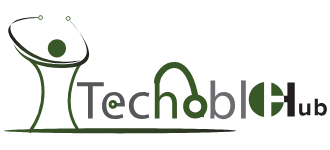Recuperbate: Understanding and Applying the Concept

Introduction: What is Recuperbate?
In a fast-paced world, recovery and self-care often take a backseat. This is where the concept of “Recuperbate” comes in. While not widely recognized in traditional dictionaries, the term represents a powerful mindset: to actively and intentionally recover from mental, physical, or emotional exhaustion.
Recuperbation combines recuperation and deliberate action, emphasizing the need to recharge with intention. Understanding and applying this approach can significantly improve overall health, performance, and life balance.
Why is Recuperbation Essential?
Many individuals experience burnout due to relentless schedules, work pressures, and personal challenges. Ignoring the body and mind’s signals can lead to chronic fatigue, anxiety, and decreased performance.
- Improves Mental Health: Recuperbating reduces stress levels, clears mental fog, and enhances clarity.
- Boosts Physical Recovery: Intentional recovery repairs muscles, strengthens immunity, and improves energy.
- Enhances Productivity: Taking time to recuperbate increases focus and efficiency.
- Builds Emotional Resilience: Deliberate rest aids in processing emotions and prevents burnout.
Incorporating recuperbation practices into your daily life ensures you function optimally while maintaining balance.
Key Principles of Recuperbate
To effectively recuperbate, you must understand the foundational principles:
1. Self-Awareness
Recognize when your mind or body is overwhelmed. Identify triggers like exhaustion, irritability, or lack of focus.
2. Intentional Rest
Rest doesn’t mean being passive. Recuperbation requires deliberate effort to disconnect and recharge meaningfully.
3. Balanced Recovery Activities
Mix physical rest, mental relaxation, and emotional healing. Avoid overcompensating with excessive leisure, which can have diminishing returns.
4. Sustainable Habits
Consistent recuperbation practices are more effective than sporadic breaks. Build recovery habits into your routine.
Methods to Recuperbate Effectively
1. Active Physical Recovery
Physical recuperation involves activities that restore the body’s energy and strength:
- Sleep Optimization: Prioritize 7-9 hours of quality sleep nightly.
- Stretching and Yoga: Gentle exercises improve blood circulation and reduce muscle tension.
- Low-Intensity Movement: Walking, swimming, or light cycling promotes active recovery without strain.
- Hydration and Nutrition: Support the body’s recovery process with clean eating and adequate hydration.
2. Mental Recuperation Practices
Overthinking and prolonged focus deplete mental resources. Effective mental recuperbation involves:
- Mindfulness Meditation: Reduces stress and improves concentration.
- Digital Detox: Set aside time without screens to reset your brain.
- Reading for Pleasure: Engaging with light, enjoyable content calms the mind.
- Journaling: Write thoughts or reflections to declutter the mind.
3. Emotional Recuperation Techniques
Emotions affect overall well-being. Incorporate techniques to balance and process emotions:
- Therapeutic Conversations: Talk with friends, family, or a professional.
- Creative Expression: Art, music, or writing can release pent-up emotions.
- Nature Therapy: Time spent outdoors reduces emotional stress.
- Practicing Gratitude: A gratitude journal shifts focus to positive aspects of life.
Signs You Need to Recuperbate
How do you know it’s time to recuperbate? Listen to these warning signs:
- Persistent fatigue despite adequate sleep
- Lack of motivation or reduced productivity
- Irritability, mood swings, or anxiety
- Physical symptoms like headaches, tension, or muscle pain
- Difficulty concentrating or making decisions
Ignoring these indicators can exacerbate mental and physical exhaustion. Taking action early prevents long-term consequences.
Building Recuperbation into Your Routine
1. Schedule Breaks Intentionally
Avoid waiting until exhaustion hits. Plan short breaks daily and extended rest weekly. Even a 10-minute pause can rejuvenate your focus.
2. Create a Restful Environment
Your surroundings influence recovery. Design spaces that are calming and clutter-free for effective recuperbation.
3. Incorporate Small Recovery Moments
Simple activities like deep breathing, stretching, or stepping outside can interrupt stress and promote micro-recuperbation throughout the day.
4. Set Boundaries
Learn to say no to excessive commitments. Protect your time and energy to focus on recovery.
5. Evaluate and Adjust
Track your energy levels and recovery needs. Adjust routines as necessary to optimize recuperbation.
Common Misconceptions About Recuperbation
Despite its importance, several misconceptions prevent people from embracing recuperbate practices:
- Rest is Lazy: Intentional rest is productive. It enhances performance and prevents burnout.
- Recovery Means Doing Nothing: Recuperbation involves active strategies to recharge, not passive idleness.
- I Don’t Have Time: Small recovery moments, when scheduled, save time by improving efficiency.
- One Long Break Fixes Everything: Consistent recovery habits matter more than occasional breaks.
Understanding these myths allows you to prioritize recuperbation without guilt.
The Science Behind Recuperbation
Research emphasizes the significance of rest and recovery:
- Improved Brain Function: Studies show that rest enhances memory, creativity, and decision-making.
- Reduced Cortisol Levels: Stress triggers cortisol release, which intentional recuperbation can counteract.
- Cellular Repair: Quality sleep and active recovery promote tissue and muscle repair.
- Enhanced Immune Response: Recuperbation strengthens immunity, preventing illness.
The science confirms that recovery isn’t optional. It’s a necessary component for maintaining health and performance.
Conclusion: Embrace Recuperbate for a Balanced Life
Incorporating recuperbation into your lifestyle is not about escaping responsibilities; it’s about sustaining energy, health, and clarity to excel. Prioritize recovery with intention, consistency, and awareness to avoid burnout.
By recognizing the signs, adopting effective practices, and breaking misconceptions, you can enhance your physical, mental, and emotional well-being. Recuperbate intentionally, and you’ll achieve a healthier, more balanced, and productive life.




